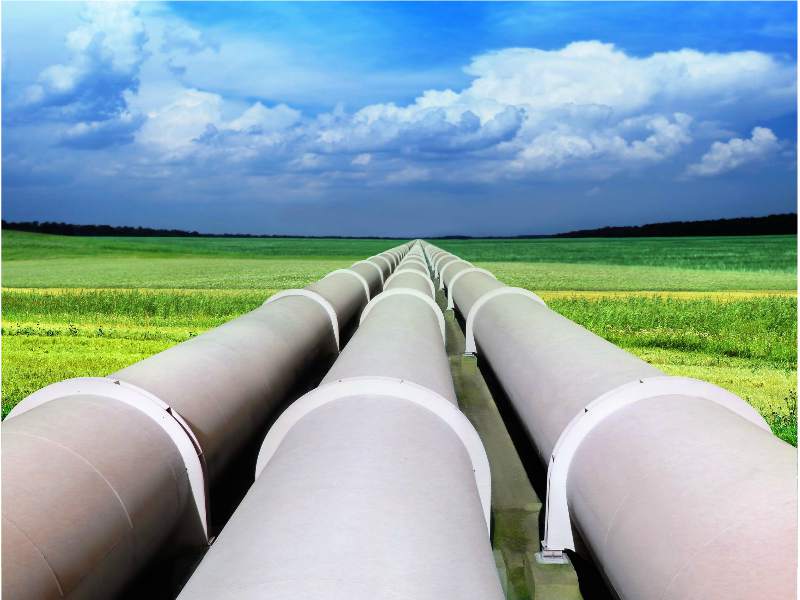



Reliable access to natural gas is fundamental to residential, commercial, and mixed-use properties across the UK.
Understanding the gas pipeline infrastructure that delivers this essential utility is critical for property developers, landlords, investors, and managers seeking to maintain operational continuity, meet safety standards, and support property value over the long term.
This guide explains how the UK’s gas pipeline infrastructure operates, its key players, and what property stakeholders need to know when planning developments or managing energy supplies.
Gas pipeline infrastructure refers to the complex network of underground pipes that:
Transport natural gas from offshore production sites and onshore terminals.
Distribute gas through national and regional networks.
Deliver gas directly to residential, commercial, and industrial properties.
The UK’s gas infrastructure is divided into two main parts:
Transmission Network (National)
Distribution Networks (Regional)
Managed by:
National Gas Transmission (formerly part of National Grid Gas Transmission)
Function:
High-pressure pipelines transport gas across the UK from entry points (e.g., North Sea terminals) to regional distribution networks and major industrial users.
Key Characteristics:
High-capacity pipelines (pressures up to 85 bar).
Runs for approximately 7,600 km across the UK.
Critical to maintaining national energy security.
Managed by:
Four main private companies under Ofgem regulation:
Cadent Gas – North West, Midlands, East of England, London
Northern Gas Networks – North East England, Yorkshire, Northern Cumbria
Wales & West Utilities – Wales and South West England
SGN – South East England and Scotland
Function:
Lower-pressure pipelines transport gas from the NTS to end consumers — homes, businesses, and public buildings.
Key Characteristics:
Medium and low-pressure systems (below 7 bar).
Includes mains pipelines and service pipes connecting individual properties.
Developers must apply to the local GDN for gas connection services.
Cost depends on distance to the nearest main and infrastructure complexity.
Large developments may require reinforcement of existing pipelines.
Older pipelines (cast iron) are being systematically replaced with polyethylene (PE) pipes under the UK’s Iron Mains Replacement Programme for safety and efficiency.
Proximity to high-pressure transmission pipelines must be disclosed in planning applications.
Health and Safety Executive (HSE) regulations apply for developments near major pipelines.
The UK maintains a national 24/7 gas emergency service (0800 111 999) for leaks and pipeline failures.
Distribution companies must respond rapidly to emergencies to maintain supply integrity and safety.
| Challenge | Impact |
|---|---|
| Ageing Infrastructure | Ongoing replacement programs needed. |
| Decarbonisation Goals | Transitioning from natural gas to hydrogen blends and low-carbon alternatives. |
| Rising Urban Development | Increasing demand for new connections and pipeline capacity upgrades. |
| Environmental Regulations | Stricter standards on pipeline maintenance and leak prevention. |
Fraser Bond supports property owners, developers, and investors with:
Utility Connection Coordination: Managing new gas connections, disconnections, or upgrades during property development.
Planning and Compliance Advisory: Ensuring developments meet regulatory safety standards around gas infrastructure.
Energy Strategy Development: Advising on futureproofing strategies as the UK moves toward hydrogen and low-carbon gas networks.
Emergency Management: Assisting with emergency planning and risk mitigation relating to gas supply interruptions.
Our integrated property management services ensure that utility infrastructure is handled professionally — safeguarding asset value, operational efficiency, and tenant satisfaction.
The UK’s gas pipeline infrastructure is a critical backbone of the energy system, delivering reliable supply to millions of properties.
For property owners and investors, understanding how this infrastructure operates — and planning strategically around connections, upgrades, and compliance — is vital for efficient property development and management. Fraser Bond’s expertise ensures that your property operations remain secure, compliant, and resilient in a rapidly evolving energy landscape.